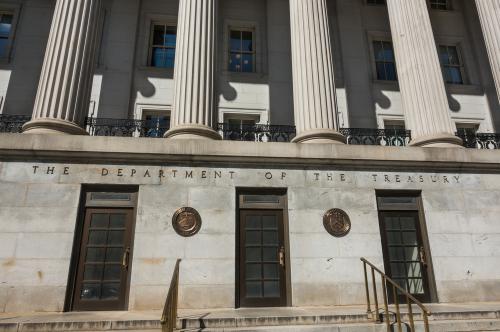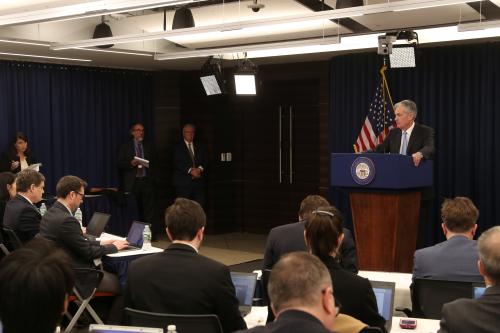Almost exactly seven years ago, former Federal Reserve Chairman Paul Volcker reflected on the Fed’s efforts to steer the failing investment bank Bear Stearns out of bankruptcy and into the arms of JPMorgan Chase. He said:
“To meet the challenge [of the failing financial system], the Federal Reserve judged it necessary to take actions that extend to the very edge of its lawful and implied powers, transcending certain long embedded central banking principles and practices. …
The immediate response to the crisis has been to resort to untested emergency powers of the Federal Reserve. Out of perceived necessity, sweeping powers have been exercised in a manner that is neither natural nor comfortable for a central bank.”
If the Fed’s maneuvering even in March 2008 seemed to go “to the very edge” of the Fed’s powers and made Volcker uncomfortable, one can only imagine what the central banking giant thought of the huge variety of new facilities and individual firm rescues engineered by the Fed, Treasury Department, and FDIC beginning in September 2008. (Volcker refrained from any very direct comment on those moves as they occurred.)
In To the Edge: Legality, Legitimacy, and the Responses to the 2008 Financial Crisis (Brookings Press, on sale April 21), I follow through on Volcker’s misgivings by systematically examining the crisis responses, from the rescue of Bear Stearns in March 2008 through the tumultuous events of September 2008, the passage of the TARP and its broad usage, the alphabet soup of emergency Federal Reserve programs, the bankruptcies of Chrysler and GM, and the extended public ownership of AIG, Fannie Mae, and Freddie Mac. Throughout, I show that the policy decisions that made the public most angry were generally not the ones that tested the limits of the law most aggressively, explaining why legality and legitimacy diverge in crises. I offer a number of recommendations for improving the legitimacy of future crisis responses, including carefully targeted congressional proscriptions, further Federal Reserve reforms left undone by the Dodd-Frank Act, and the establishment of a carefully delimited slush fund for use in fighting financial crises.
I will have much more to say about To the Edge on FixGov as we reach the book’s official launch date of April 21. For now, I want to alert readers to the terrific event we have planned Monday, April 6, which will feature David Wessel (author of one of the best crisis books out there), Simon Johnson (one of the most incisive critics of the government’s crisis responses), and Andrew Levin (formerly a top aide to Ben Bernanke). It should be a lively discussion, to say the least! Registration is here, and a video of the proceedings will be made available shortly after the event finishes.
The Brookings Institution is committed to quality, independence, and impact.
We are supported by a diverse array of funders. In line with our values and policies, each Brookings publication represents the sole views of its author(s).




Commentary
Upcoming event: Questioning the legality and legitimacy of responses to the 2008 financial crisis
April 2, 2015